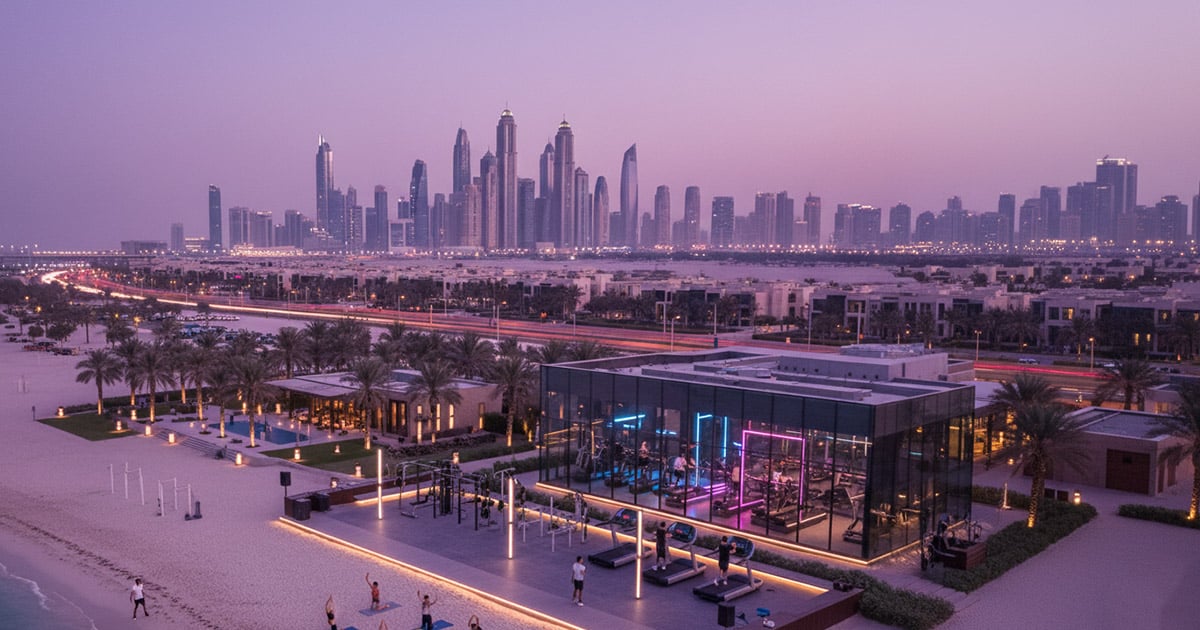Digital Nomad lifestyle has emerged as a revolutionary shift in how people perceive work and travel. With advancements in technology and the rise of remote work opportunities, the traditional boundaries between work and leisure have become increasingly blurred. For many, the Digital Nomad lifestyle represents the ultimate freedom: the ability to work from anywhere while exploring new locations. This profound change has led to a significant transformation in how we think about travel and accommodation.
Table of Contents
The Digital Nomad Phenomenon
Definition and Background
A digital nomad is an individual who uses telecommunications technologies to earn a living and, more generally, conduct their life in a nomadic manner. Unlike traditional office workers, digital nomads are not tied to a single location; they work remotely from various destinations around the world. This lifestyle has gained traction with the rise of high-speed internet, co-working spaces, and remote work opportunities.
The concept of digital nomadism is not entirely new. In the early 2000s, the term began to gain popularity as more professionals started exploring the possibility of working remotely while traveling. Today, it is a global movement supported by a growing community of remote workers and freelancers. According to Nomad List, the number of digital nomads is projected to increase significantly in the coming years.
Growth Statistics
The rise of digital nomadism is backed by impressive statistics. A report by Statista indicates that approximately 35% of the global workforce is expected to work remotely by 2025. Furthermore, Forbes highlights that the remote work trend has been accelerated by the COVID-19 pandemic, which has further fueled the desire for location-independent lifestyles.
Flexibility in Modern Travel
What Flexible Stays Entail
Flexible stays refer to accommodation options that allow travelers to adjust their bookings according to their changing plans. Unlike traditional hotel reservations with fixed check-in and check-out dates, flexible stays offer the convenience of modifying dates, extending stays, or even canceling without heavy penalties.
For Remotely workers, flexibility is crucial. They often need the freedom to change their travel plans based on work requirements, personal preferences, or unforeseen circumstances. estaie offers flexible booking options that cater to these needs, allowing travelers to adapt their stay as necessary.

The Shift Towards Long-Term Stays
One of the notable trends in the digital nomad lifestyle is the growing preference for long-term stays. Traditional short-term hotel stays are giving way to longer, more comfortable accommodations that provide a home-like environment. This shift is driven by the desire for stability and the need to establish a productive workspace.
Companies like estaie are at the forefront of this trend, offering a range of accommodations from luxury apartments to cozy studios, suitable for extended stays. By providing fully furnished spaces with amenities like high-speed internet and dedicated workstations, estasie caters to the needs of remote workers seeking both comfort and functionality.
The Role of Technology in Enhancing Flexibility
Smart Accommodations
Technology plays a significant role in enhancing the flexibility of modern accommodations. Smart home technologies, such as automated lighting, temperature control, and voice-activated assistants, contribute to a more comfortable and convenient stay.
For instance, properties equipped with smart locks allow digital nomads to check in and out seamlessly without the need for physical keys. Smart thermostats enable guests to adjust the temperature to their preference, ensuring a pleasant environment throughout their stay. Nest and Amazon Echo are examples of smart technologies that enhance the guest experience.
Seamless Online Services
In addition to smart home features, seamless online services are crucial for modern travelers. The ability to book accommodations, manage reservations, and communicate with hosts through online platforms simplifies the travel experience.
Platforms like Expedia and Vrbo offer user-friendly interfaces for booking and managing accommodations. These platforms often include features such as instant booking confirmation, customer support, and detailed property descriptions, making it easier for digital nomads to find and secure suitable accommodations.
Benefits of Flexible Stays for Digital Nomads
Comfort and Convenience
Flexible stays offer digital nomads the comfort and convenience they need to balance work and leisure. With the option to choose from a variety of accommodations, including serviced apartments and co-living spaces, remote workers can find a setting that suits their personal preferences and work requirements.
For example, a digital nomad working in Dubai might opt for a serviced apartment with a dedicated workspace and high-speed internet, while someone in Bali might choose a co-living space with communal areas for networking and socializing. Millennium Place Barsha Heights in Dubai and The Green Lion in Bali are examples of properties catering to different needs.
Enhanced Productivity
A conducive environment is essential for productivity, and flexible stays provide the right setting for remote work. Many accommodations offer amenities such as ergonomic workstations, quiet environments, and reliable internet connections, contributing to a more productive work experience.
Moreover, the ability to choose a location based on personal preferences and work requirements allows digital nomads to find a balance between work and relaxation. For instance, a digital nomad might choose a property near a beach in Thailand for a peaceful work environment with opportunities for leisure and recreation.
Cost-Effectiveness
Flexible stays can also be cost-effective for digital nomads. Many accommodations offer discounts for long-term stays, making it more affordable compared to booking multiple short-term stays. Additionally, having access to kitchen facilities and other amenities reduces the need for dining out, further lowering expenses.
estaie offers competitive pricing and flexible options for extended stays. By choosing accommodations with kitchen facilities and other amenities, digital nomads can save on dining and other expenses.
The Future of Flexible Stays
Emerging Trends
As the digital nomad lifestyle continues to evolve, several emerging trends are shaping the future of flexible stays. These trends include the rise of hybrid workspaces, the integration of wellness features, and the growing demand for eco-friendly accommodations.
Hybrid Workspaces
Hybrid workspaces combine traditional office settings with flexible working arrangements. These spaces provide remote workers with access to professional environments and amenities while allowing for a degree of flexibility. Companies like WeWork and Spaces are leading the way in offering hybrid workspaces that cater to the needs of digital nomads.
Wellness Features
The integration of wellness features into accommodations is becoming increasingly popular. Many digital nomads prioritize health and well-being during their travels, leading to a demand for properties with amenities such as fitness centers, yoga studios, and spa facilities.
For example, Six Senses offers wellness-focused accommodations with on-site fitness and spa facilities, catering to travelers who seek both relaxation and rejuvenation.
Eco-Friendly Accommodations
Sustainability is a growing concern for travelers, and eco-friendly accommodations are gaining traction. Many digital nomads are seeking out properties that prioritize environmental responsibility, including those with energy-efficient systems, waste reduction practices, and sustainable sourcing.
The Ecologe is an example of an eco-friendly accommodation provider that emphasizes sustainable practices and environmental stewardship.
Conclusion
The rise of the Digital Nomad lifestyle has significantly transformed the travel and accommodation landscape, underscoring the growing need for flexible stays that cater to the diverse needs of remote workers. As technology continues to advance and consumer preferences evolve, the hospitality industry must adapt to meet these demands and provide solutions that align with the Digital Nomad way of life.
For the Digital Nomad, flexible stays offer numerous benefits that enhance both the work and travel experience. Comfort and convenience are paramount for any Digital Nomad accommodation, as these factors directly impact productivity and overall satisfaction. Accommodations designed for the Digital Nomad lifestyle often include features such as high-speed internet, ergonomic workspaces, and comfortable living areas, all of which contribute to a productive and enjoyable stay.
One of the key advantages of flexible stays for the Digital Nomad is the enhanced productivity they facilitate. Remote workers need environments that support their professional activities while also allowing for relaxation and rejuvenation. Many Digital Nomad accommodations integrate smart technologies and seamless online services, making it easier for remote workers to manage their tasks efficiently. This technological integration helps the Digital Nomad stay connected and productive, regardless of their location.
The focus on wellness and sustainability is also increasingly relevant for the Digital Nomad. Modern accommodations are incorporating features that promote well-being, such as fitness centers, wellness programs, and eco-friendly practices. For the Digital Nomad, who may spend extended periods away from home, these wellness features can greatly enhance their overall quality of life and work-life balance.
As the demand for Digital Nomad accommodations grows, so does the need for adaptability in the hospitality industry. The ability to offer flexible booking options, personalized services, and tailored amenities is crucial for attracting and retaining Digital Nomad guests. This adaptability ensures that accommodations remain relevant and appealing to the evolving needs of remote workers.
Overall, the transformation brought about by the Digital Nomad lifestyle is reshaping the way we think about travel and accommodation. The emphasis on flexible stays, smart technologies, and sustainable practices reflects a broader shift towards meeting the needs of modern travelers. For the Digital Nomad, these changes mean more options, better experiences, and a more balanced approach to work and leisure.







